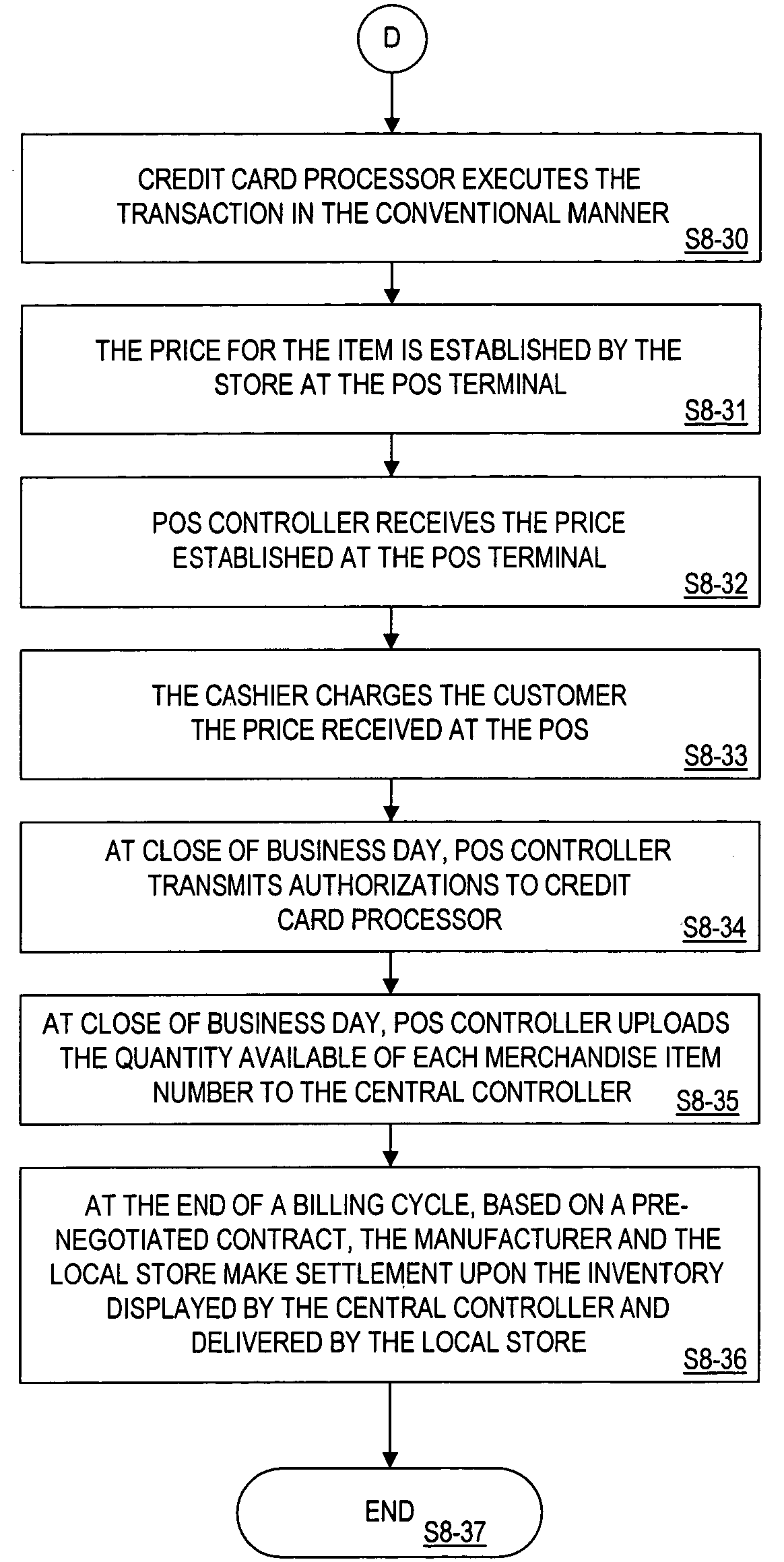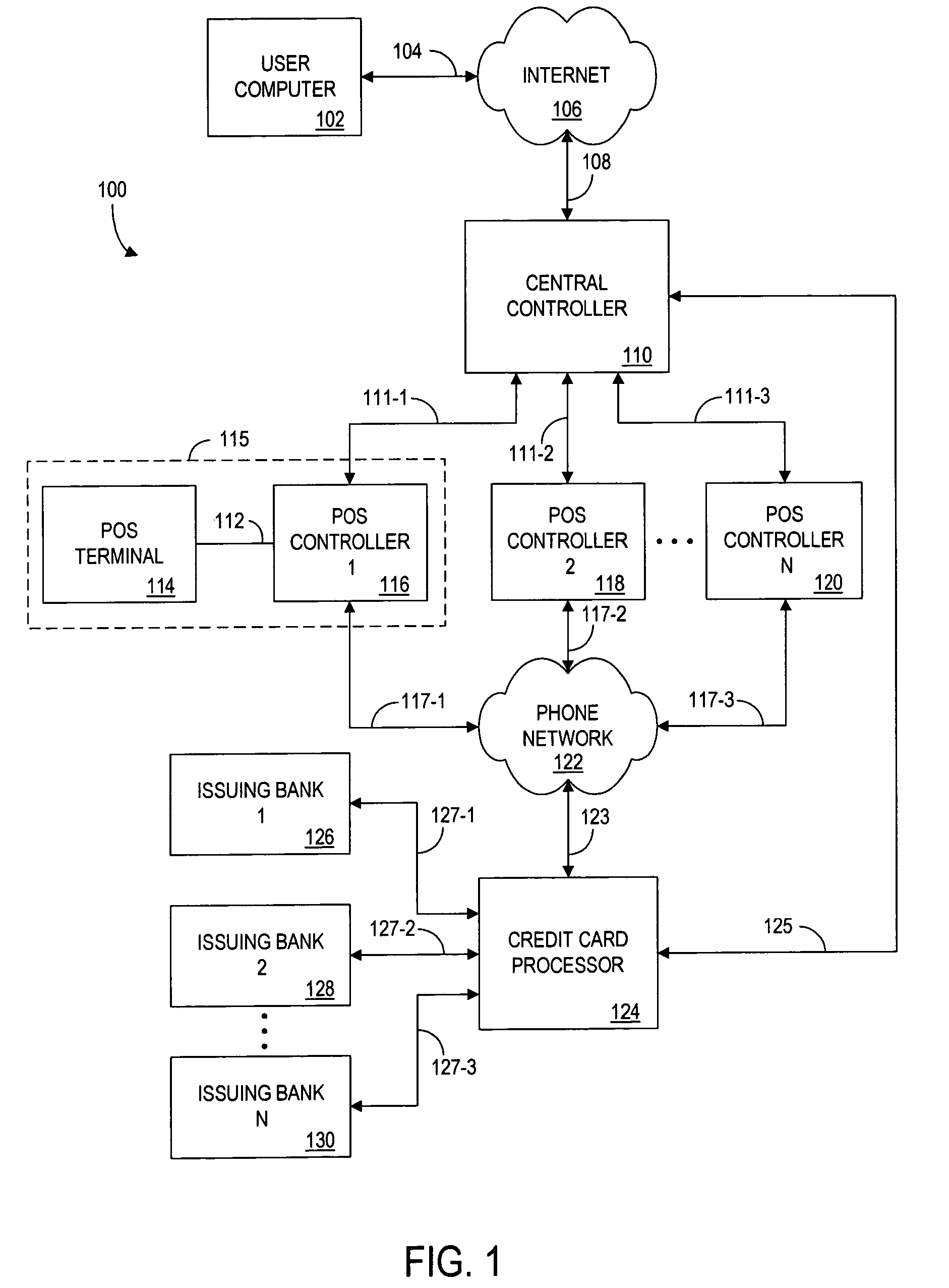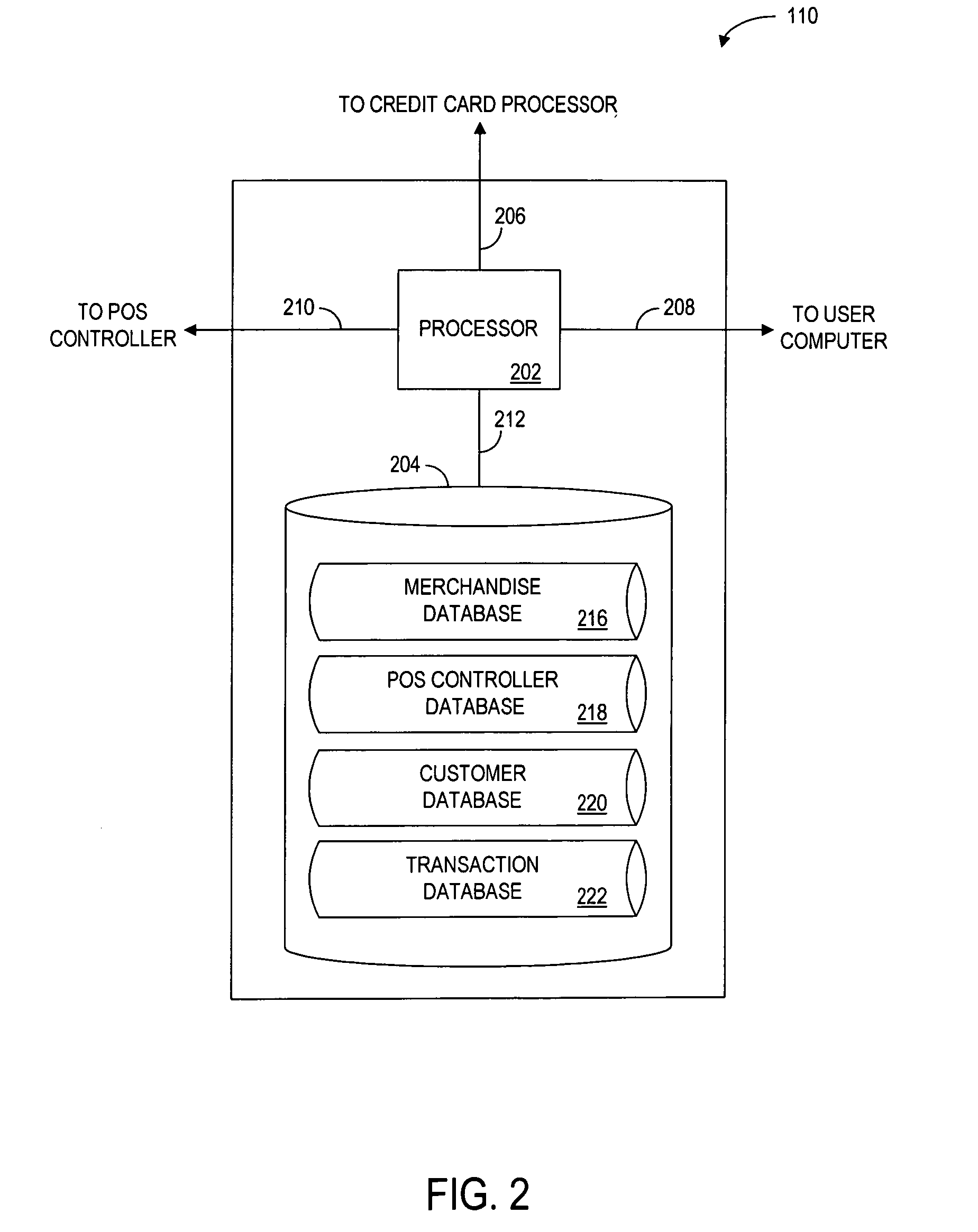Systems and methods wherein a buyer purchases a product at a first price and physically acquires the product at a location associated with a merchant that offers the product for sale at a second price
a technology of a product and a buyer, which is applied in the field of system and methods, can solve the problems of inability to effectively use one of the key tools, inability to control the retail price of the manufacturer, and inability to effectively sell products, etc., and achieves the effects of facilitating the sale and distribution of products
- Summary
- Abstract
- Description
- Claims
- Application Information
AI Technical Summary
Benefits of technology
Problems solved by technology
Method used
Image
Examples
Embodiment Construction
[0054]In this section, the present invention is described in detail with regard to the drawing figures briefly described above.
[0055]Accordingly, the following terms are used throughout the remainder of this section. For purposes of construction, such terms shall have the following meanings:
[0056]The terms “outlet”, “retailer”, “merchant”, and “store”, unless otherwise specified below, are used interchangeably to refer to any type of retail merchandising establishment that sells goods to, and processes point-of-sale transactions from, customers. The terms include both walk-in and remote (e.g. catalog) sellers who, in accordance with the invention, have agreed to honor a price that is established between a customer and a manufacturer.
[0057]The terms “product”, “good”, “item”, and “service”, unless otherwise specified below, are used interchangeably to refer to any type of commodity that may be sold or otherwise distributed by a retailer. It should be readily appreciated that both pro...
PUM
 Login to View More
Login to View More Abstract
Description
Claims
Application Information
 Login to View More
Login to View More - R&D
- Intellectual Property
- Life Sciences
- Materials
- Tech Scout
- Unparalleled Data Quality
- Higher Quality Content
- 60% Fewer Hallucinations
Browse by: Latest US Patents, China's latest patents, Technical Efficacy Thesaurus, Application Domain, Technology Topic, Popular Technical Reports.
© 2025 PatSnap. All rights reserved.Legal|Privacy policy|Modern Slavery Act Transparency Statement|Sitemap|About US| Contact US: help@patsnap.com



